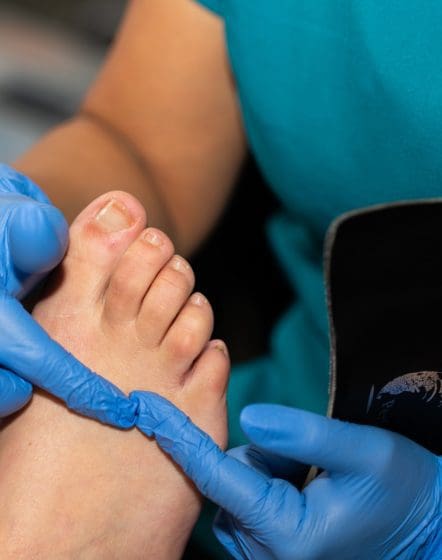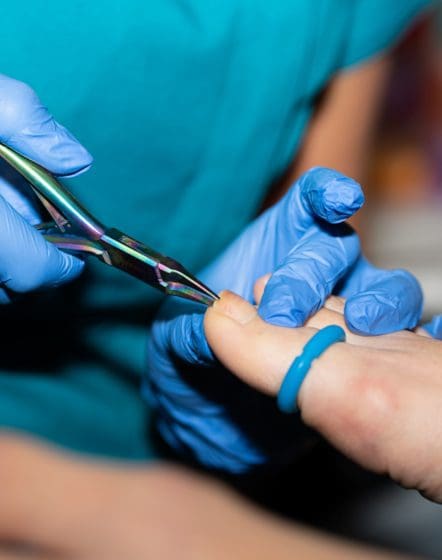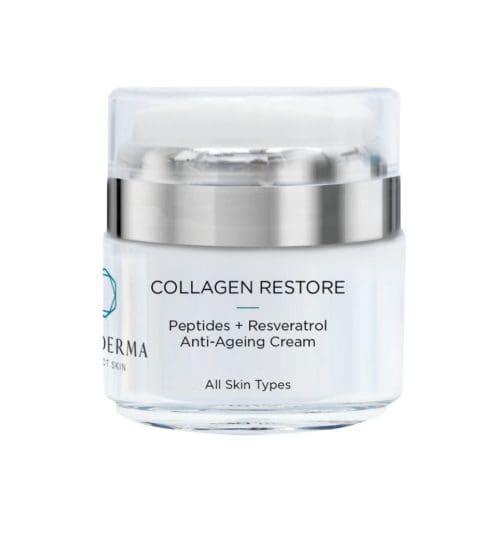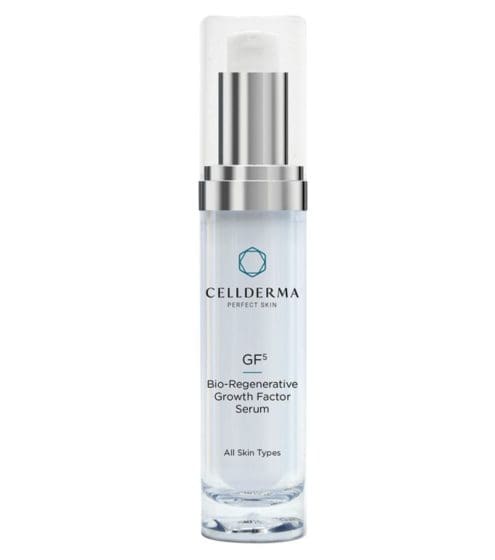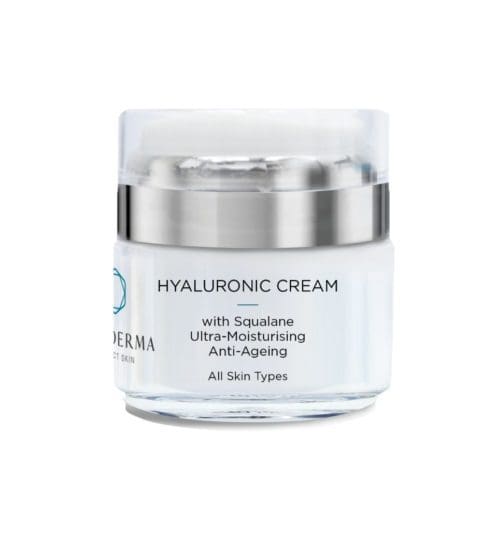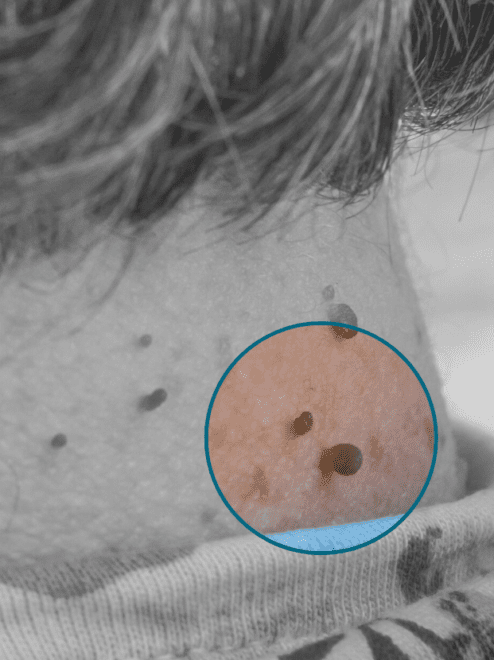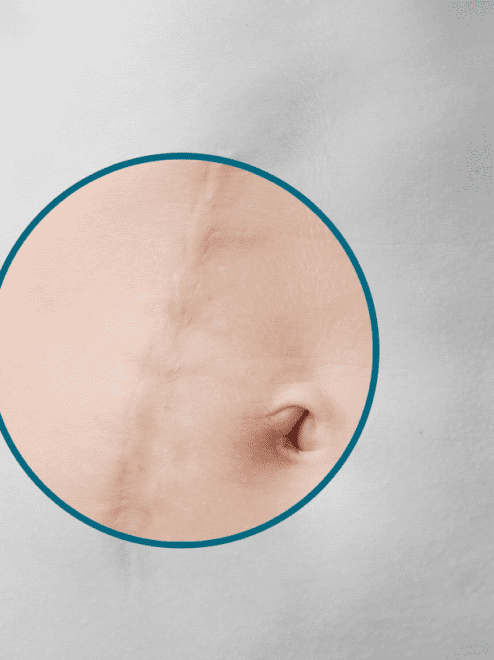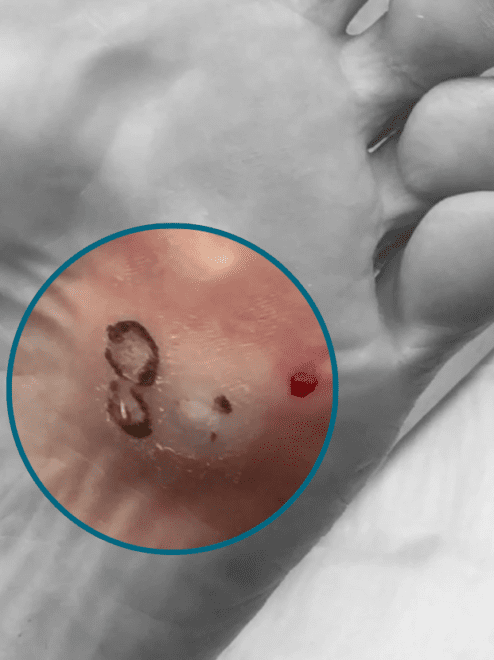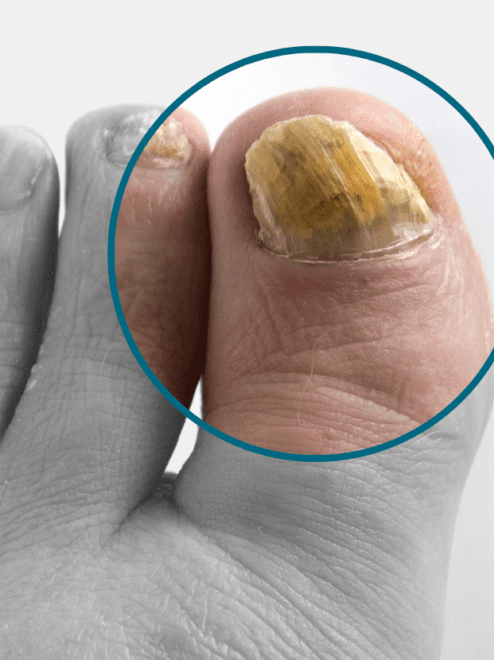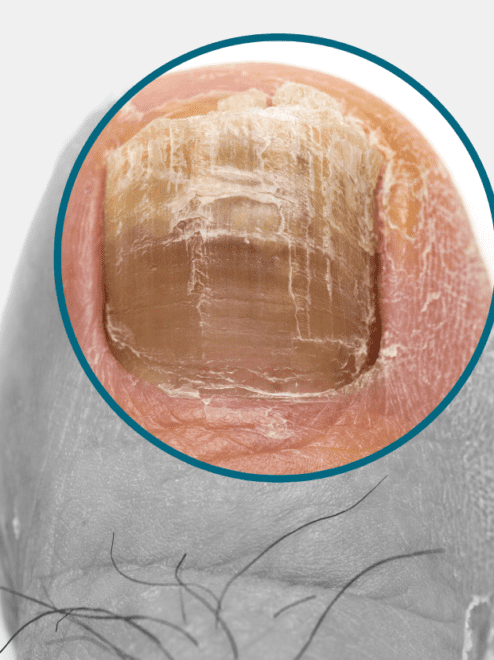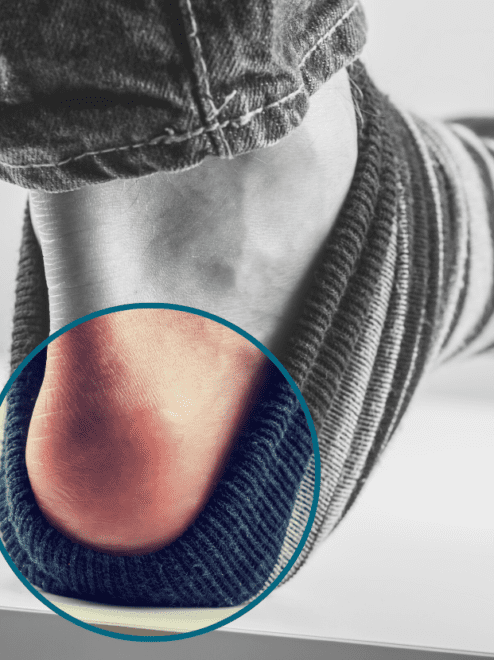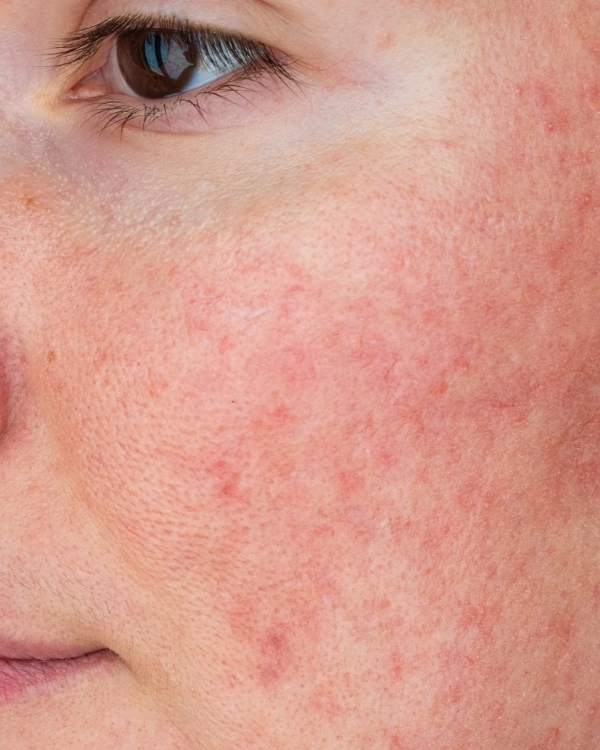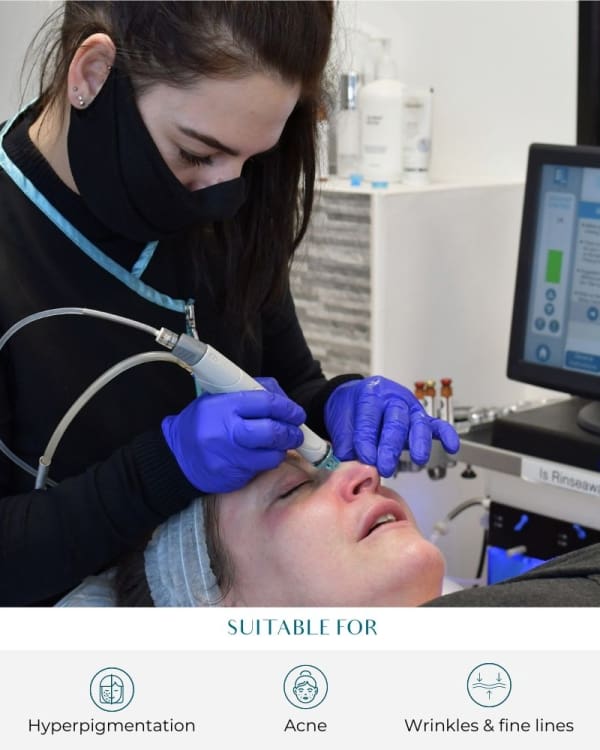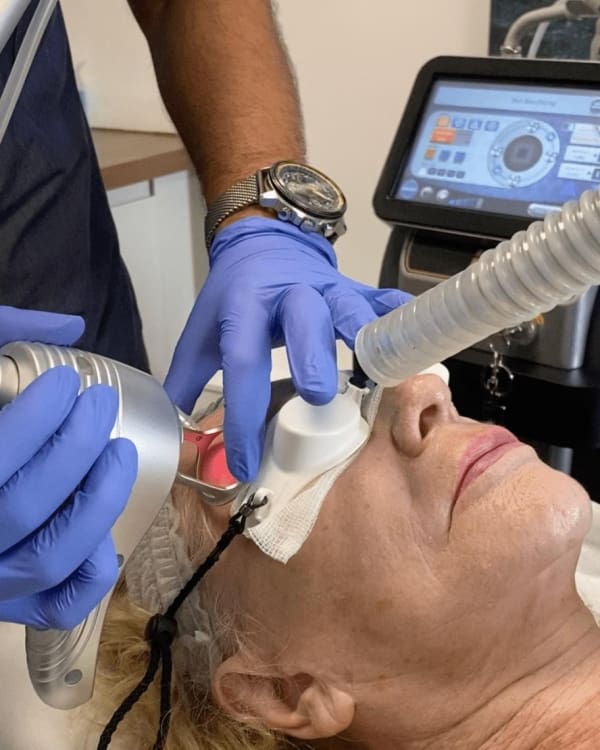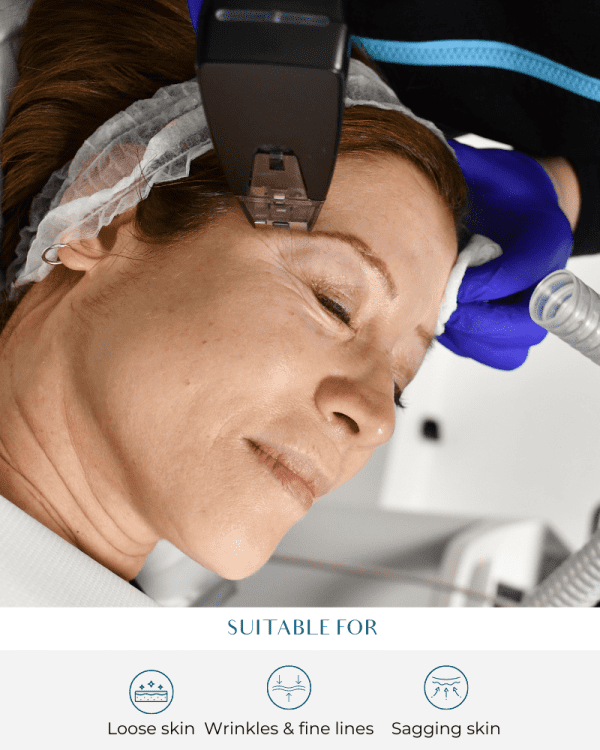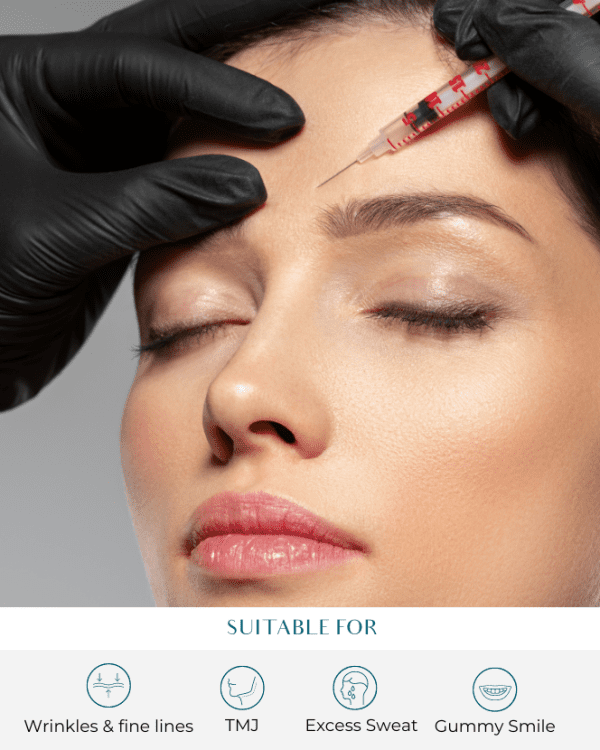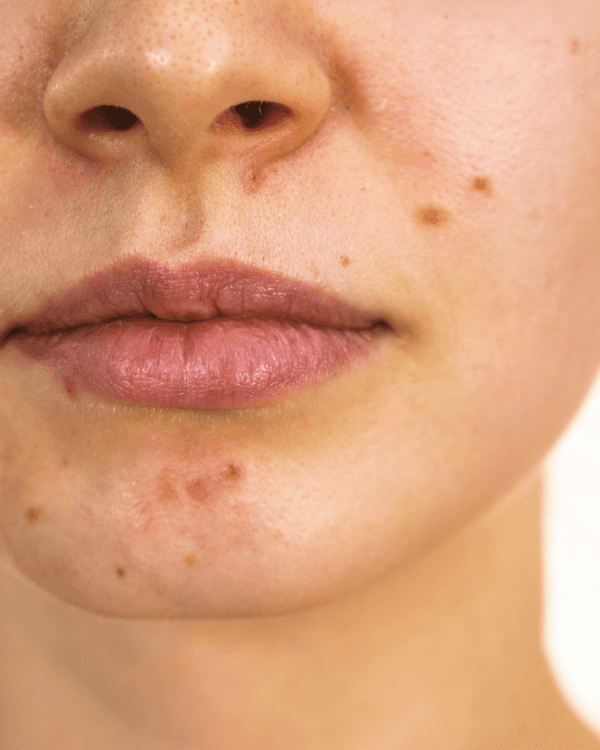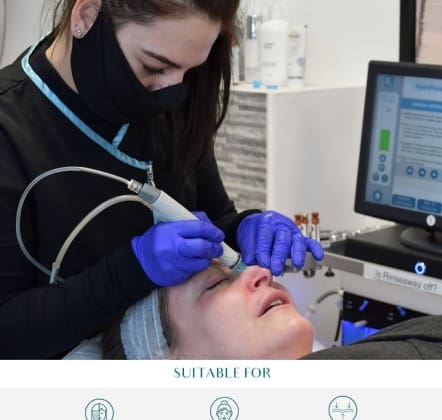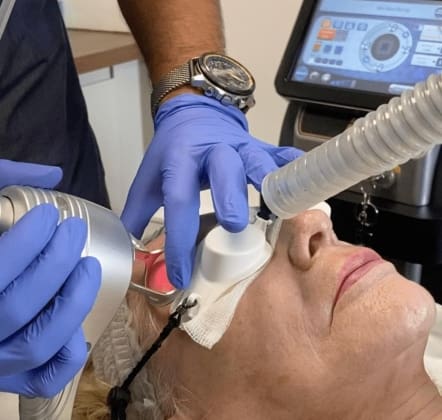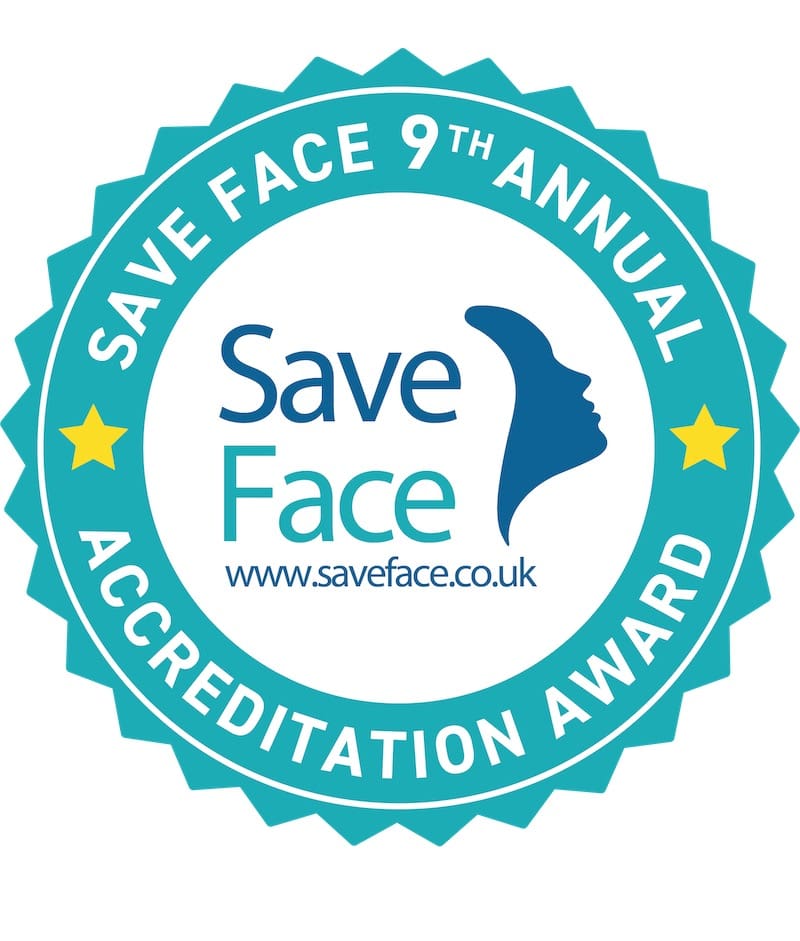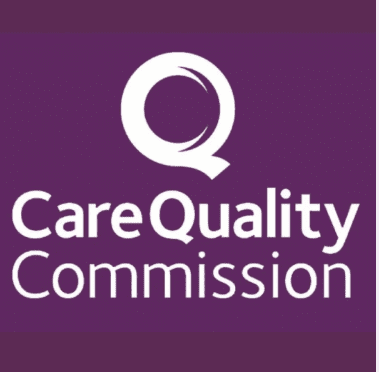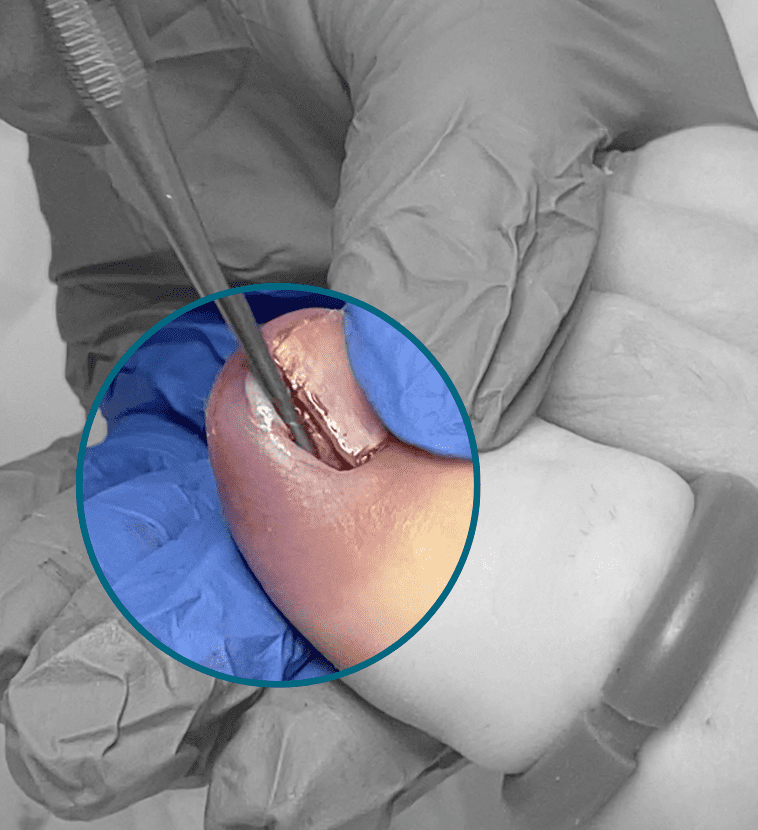

foot Condition
Ingrown Toenail
Ingrown toenails occur when the toenail curves downward into the surrounding skin along the medial or lateral border of the nail. In some cases, a sharp edge or spike of the nail grows into the nail sulcus, causing pain, redness, and swelling in the affected area. Left untreated, ingrown toenails can lead to infection, increased discomfort, and a build-up of hard skin around the toe.
What is an Ingrown Toenail?
Definition and Explanation
An ingrown toenail is a common condition where the nail grows into the surrounding skin, causing pain, redness, and swelling. This occurs when the nail plate, the hard outer layer of the nail, grows into the skin next to the nail, leading to inflammation and potentially infection. Ingrown toenails can be caused by a variety of factors, including poorly fitting shoes, nail biting or picking, fungal infections, and genetic predisposition.
Ingrown toenails can be classified into four stages, ranging from mild to severe. In the early stages, the nail may be slightly curved and cause minor discomfort. However, if left untreated, the condition can progress, leading to increased pain, swelling, and potentially infection. Understanding the stages and causes of ingrown toenails can help in early identification and treatment, preventing more serious complications.
Private Ingrown Toenail Surgery Near Me
Long NHS waiting lists and painful symptoms may mean you would like to have your feet treated at a private clinic.
Our expert chiropodist in Portsmouth specialises in foot treatment.
What Causes Ingrown Toenails?
Ingrown toenails can occur due to several factors:
- Familial or Congenital Factors: Some people are predisposed to ingrown nails because the nail is naturally too large for the toe or grows at an angle into the skin. Nail growing into the surrounding skin can lead to ingrown toenails, causing pain and discomfort.
- Improper Toenail Trimming: Badly cut toenails, especially those cut too short or at an angle, can encourage the nail to grow into the skin rather than straight.
- Poorly Fitted Shoes: Wearing shoes or socks that are too tight places pressure on the toenail, causing it to dig into the surrounding skin.
- Trauma: Injuries like stubbing your toe or having someone step on your foot can result in an ingrown toenail.
- Biomechanical Issues: Abnormalities in how you walk or pressure on certain areas of your foot can also lead to an ingrown toenail.
Symptoms of Ingrown Toenails
Patients with ingrown toenails often experience:
- Pain and tenderness along the edge of the toenail.
- Swelling and redness around the affected area.
- Infection, including symptoms such as bleeding, pus, and increased warmth in the toe.
- Discomfort or pain when wearing shoes.
If left untreated, the condition may worsen, requiring more invasive treatments. Ingrowing toenails can cause significant discomfort and should be treated promptly to avoid complications.
Treatment Options for Ingrown Toenails
At Perfect Skin Solutions, we offer both conservative and surgical treatments to help you achieve lasting pain relief:
Surgical procedures may involve accessing the nail bed to remove the ingrown portion of the nail and ensure proper healing.
1. Conservative Treatment
For mild cases, we focus on relieving pressure and guiding the nail back to its natural shape. This may include:
- Gently Pushing the Nail: A cotton bud or similar tool is used to lift the nail edge away from the skin.
- Reduction of the Nail Plate: Expert trimming to shape the nail correctly.
- Application of an antibiotic solution to reduce infection.
- Advising patients to keep the foot elevated to reduce swelling and avoid wearing tight shoes during recovery.
2. Surgical Treatment
For more severe or recurring cases, toenail surgery is the most effective option.
- Performed under local anaesthetic to minimise pain and discomfort, our podiatrist removes the partial nail, entire nail, or problematic nail section.
- A sterile large dressing is applied post-procedure to protect the toe and aid healing.
- Patients are advised on post-operative care, such as keeping the area clean, resting, and avoiding pressure from tight shoes or socks during the first few days.
Complications and Consequences
Potential Complications of Ingrown Toenails
If left untreated, ingrown toenails can lead to several complications, including:
- Infection: Bacteria can enter the wound, causing infection and potentially leading to more severe conditions, such as abscesses or cellulitis.
- Abscesses: A pocket of pus can form under the skin, which may need to be drained surgically.
- Cellulitis: A bacterial infection of the skin and underlying tissues, which can spread to other parts of the body if left untreated.
- Gangrene: In severe cases, the infection can lead to gangrene, a condition where the tissue dies due to lack of blood supply.
- Chronic Pain: Ingrown toenails can cause persistent pain, which can affect daily activities and overall quality of life.
These complications highlight the importance of early treatment and proper care for ingrown toenails. Ignoring the symptoms can lead to more serious health issues, making it crucial to address the problem promptly.
Prevention and Self-Care
Tips for Preventing Ingrown Toenails
Preventing ingrown toenails requires a combination of good foot hygiene, proper nail care, and wearing well-fitting shoes. Here are some tips to help prevent ingrown toenails:
- Trim Toenails Straight Across: Avoid cutting them too short or at an angle to prevent the nail from growing into the skin.
- Wear Shoes That Fit Properly: Avoid tight or poorly fitting shoes that can put pressure on the toes.
- Keep Feet Clean and Dry: Wash them daily and dry them thoroughly, especially between the toes.
- Avoid Sharing Personal Care Items: Such as nail clippers or files, to prevent the spread of infection.
- Wear Socks Made of Breathable Materials: Such as cotton or wool, to keep feet dry and cool.
- Avoid Walking Barefoot in Public Areas: Such as swimming pools or locker rooms, to reduce the risk of fungal infections.
By following these tips, individuals can reduce their risk of developing ingrown toenails and prevent potential complications. If symptoms persist or worsen, it is essential to seek medical attention from a qualified healthcare professional. Taking proactive steps in foot care can make a significant difference in maintaining healthy toenails and overall foot health.
Why Choose Perfect Skin Solutions?
When it comes to ingrown toenail surgery, skill and experience are critical. At Perfect Skin Solutions, we take pride in offering professional care tailored to each patient’s needs. Our expert podiatrist combines precision with a warm, welcoming approach, ensuring every patient feels comfortable and informed.
- All procedures are explained in detail, allowing you time to ask questions and understand your treatment plan.
- Treatments are performed under local anaesthesia, ensuring minimal discomfort.
- We aim to restore the natural growth of your toenail while relieving pain and preventing recurrence.
Frequently Asked Questions
What happens after ingrown toenail surgery?
After surgery, you may experience minor discomfort or swelling. Keeping the foot elevated and following our aftercare advice will help you recover quickly. Most patients return to normal activities within days.
What if I leave my ingrown toenail untreated?
Leaving an ingrown toenail untreated increases the risk of infection and further complications, such as pain, swelling, and difficulty wearing shoes. Early treatment is key to avoiding more invasive procedures.
Do I need to bring anything to my appointment?
For your first appointment, bring details of your medical history and any symptoms you’ve been experiencing. This helps us create a personalised treatment plan.
Book Your Appointment Today
If you’re searching for private ingrown toenail surgery, look no further than Perfect Skin Solutions. Whether you need conservative care or surgical nail removal, our clinic is here to help you step back into comfort. Don’t let an ingrown toenail stop you from enjoying life—schedule your consultation today and take the first step toward relief!

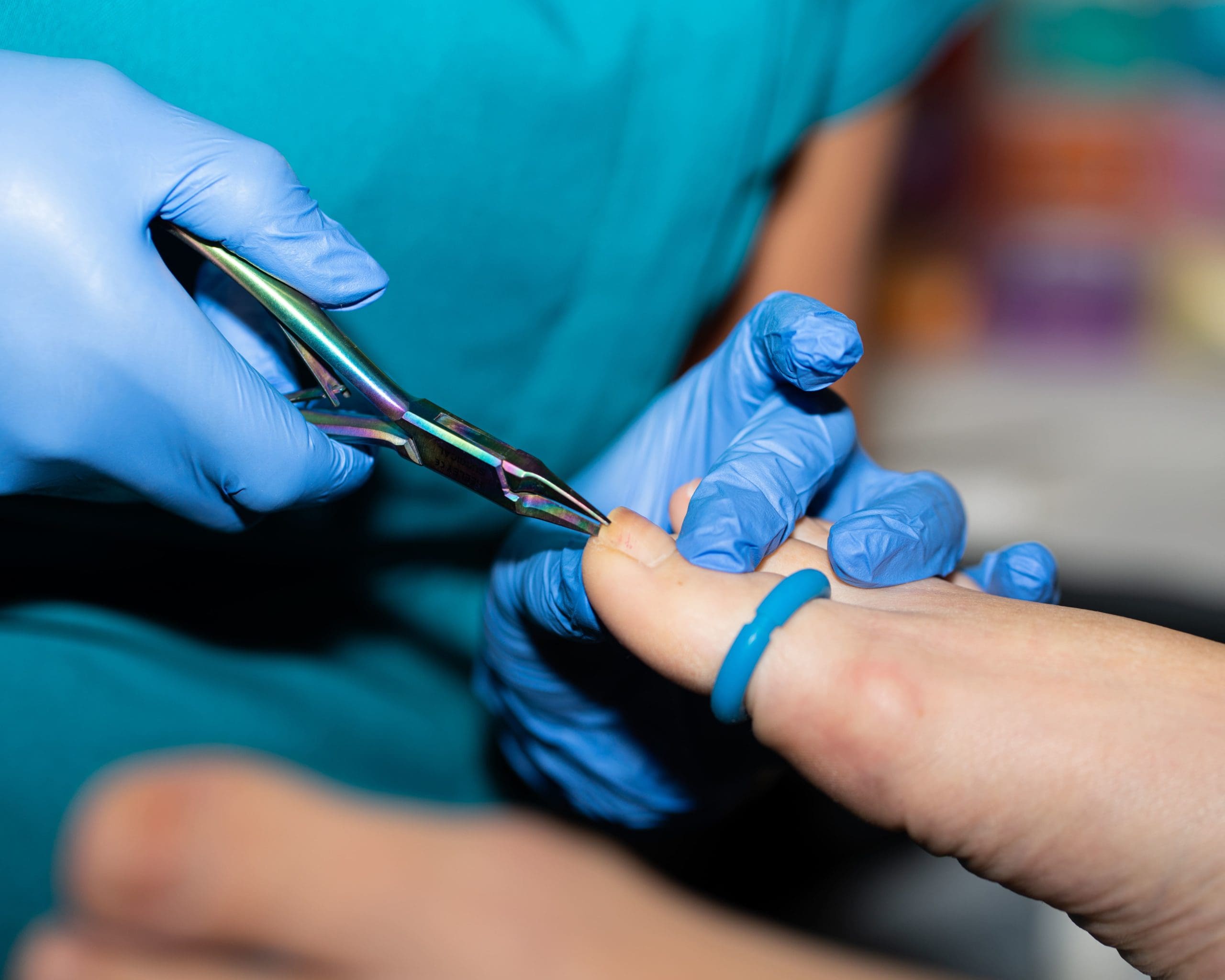

Why have your Ingrown Toenail treated at Perfect Skin Solutions?
This is where the level of surgical skill matters most, and you can be assured of being in the very best of hands with our podiatrist who has helped many patients with their ingrown toenails, with a welcoming smile and attention to detail, patients are always happy to have found Perfect Skin Solutions, where they can be looked after. You will always have any treatment or procedure fully explained to you without any pressure and the time to ask any questions you may have.
Get in contact

























